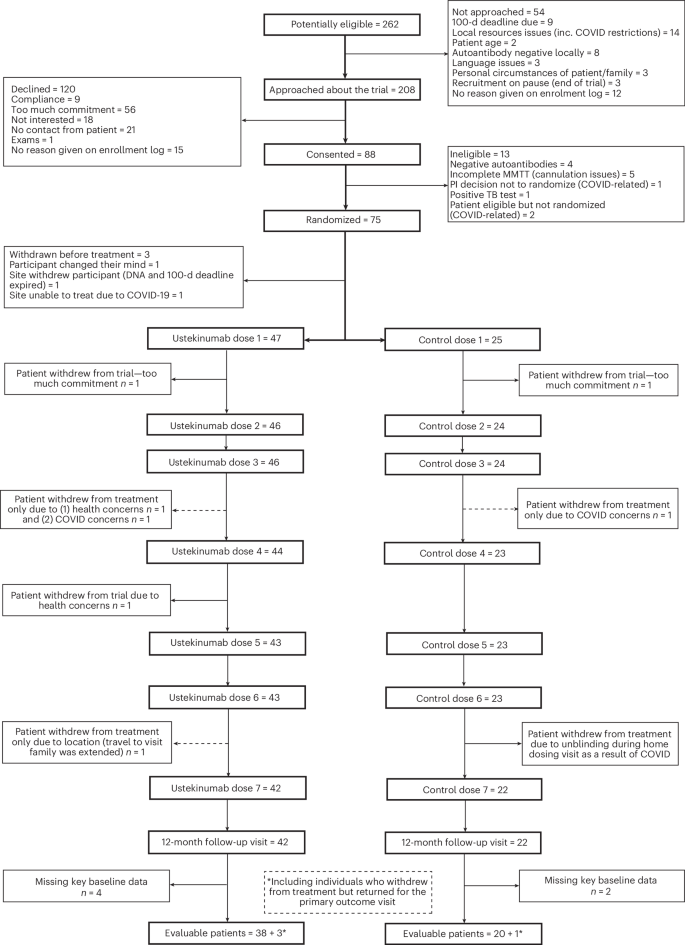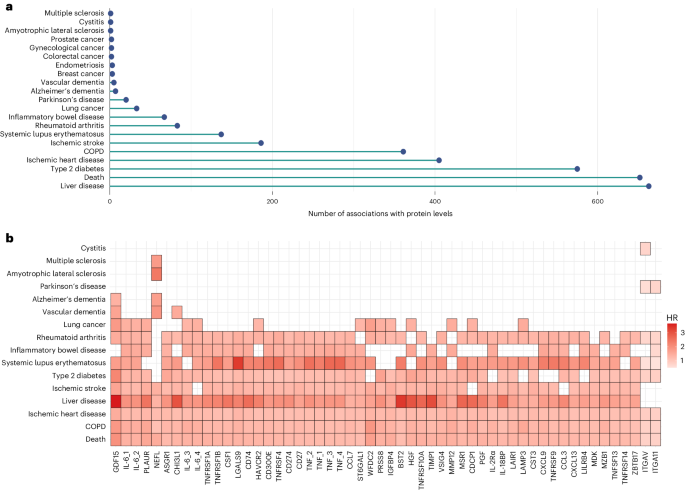2024-07-30 スウォンジー大学
<関連情報>
- https://www.swansea.ac.uk/press-office/news-events/news/2024/07/skin-disease-drug-shows-promise-for-treating-childhood-diabetes.php
- https://www.nature.com/articles/s41591-024-03115-2
思春期の1型糖尿病に対するウステキヌマブ:多施設共同二重盲検無作為化第2相試験 Ustekinumab for type 1 diabetes in adolescents: a multicenter, double-blind, randomized phase 2 trial
Danijela Tatovic,Ashish Marwaha,Peter Taylor,Stephanie J. Hanna,Kym Carter,W. Y. Cheung,Steve Luzio,Gareth Dunseath,Hayley A. Hutchings,Gail Holland,Steve Hiles,Greg Fegan,Evangelia Williams,Jennie H. M. Yang,Clara Domingo-Vila,Emily Pollock,Muntaha Wadud,Kirsten Ward-Hartstonge,Susie Marques-Jones,Jane Bowen-Morris,Rachel Stenson,Megan K. Levings,John W. Gregory,Timothy I. M. Tree,USTEKID Study Group,+
Nature Medicine Published:30 July 2024
DOI:https://doi.org/10.1038/s41591-024-03115-2

Abstract
Immunotherapy targeting the autoimmune process in type 1 diabetes (T1D) can delay the loss of β-cells but needs to have minimal adverse effects to be an adjunct to insulin in the management of T1D. Ustekinumab binds to the shared p40 subunit of interleukin (IL)-12 and IL-23, targeting development of T helper 1 cells and T helper 17 cells (TH1 and TH17 cells) implicated in the pathogenesis of T1D. We conducted a double-blind, randomized controlled trial of ustekinumab in 72 adolescents aged 12–18 years with recent-onset T1D. Treatment was well tolerated with no increase in adverse events. At 12 months, β-cell function, measured by stimulated C-peptide, was 49% higher in the intervention group (P = 0.02), meeting the prespecified primary outcome. Preservation of C-peptide correlated with the reduction of T helper cells co-secreting IL-17A and interferon-γ (TH17.1 cells, P = 0.04) and, in particular, with the reduction in a subset of TH17.1 cells co-expressing IL-2 and granulocyte–macrophage colony-stimulating factor (IL-2+ GM-CSF+ TH17.1 cells, P = 0.04). A significant fall in β-cell-targeted (proinsulin-specific) IL-17A-secreting T cells was also seen (P = 0.0003). Although exploratory, our data suggest a role for an activated subset of TH17.1 cells in T1D that can be targeted with minimal adverse effects to reduce C-peptide loss, which requires confirmation in a larger study. (International Standard Randomised Controlled Trial Number Registry: ISRCTN 14274380).


